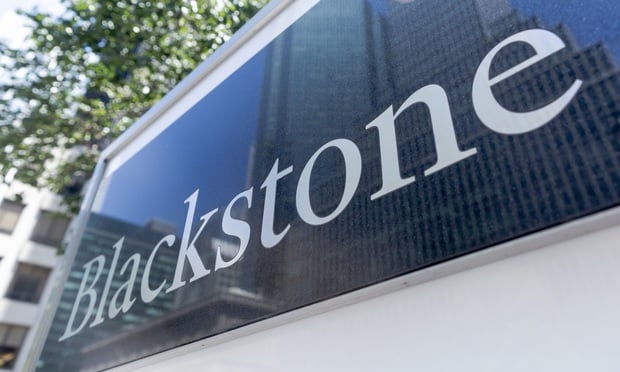SANTA ANA, CA—Title agents believe the first-time home buyer will be most affected by interest-rate hikes, but the cost of buying a home—or the "price of admission"—was likely to rise organically whether or not the Fed raised rates, First American Financial Corp.'s chief economist Mark Fleming tells GlobeSt.com. The firm recently released its fourth-quarter Real Estate Sentiment Index (RESI), which measures title-agent sentiment on a variety of key market metrics and industry issues, including expectations for price changes across multiple property types, and expectations for changes in volume for purchase and refinance transactions.
The firm also recently released its proprietary Potential Home Sales model (previously called the Existing-Home Sales Capacity model) for November, which provides a gauge on whether existing-home sales are under or over their long-run potential level based on current market fundamentals. For the month of November, the model showed that the market potential for existing-home sales decreased by 2.1% compared to October and decreased by 8% compared to a year ago.
Based on the Fed's decision last week to raise rates, Fleming said, "While the increase in theshort-term rate only indirectly influences long-term interest rates, the Fed signaled a continued modest path of rate increases. According to the model, a modest path of rate increases will moderately increase the cost of mortgage financing and reduce the pace of house-price appreciation in 2016.
Meanwhile, commercial real estate experts are saying that the Fed rate hike decision won't impact the CRE sector much at all. According to Spencer Levy, head of research, the Americas, for CBRE, "We do not believe [last week's] move will have any impact on the commercial real estate markets and that the Fed likely has significantly more room to move before we begin to see real pressure on cap rates. That said, certain markets may be more susceptible than others to interest rate increases."
Levy went on to say, "The flow of international funds—combined with domestic pension funds' large pools of capital allocated to commercial real estate but unspent—will outweigh any potential increase in the cost of capital. The wildcards here include the price of oil, an economic hard landing in China, which would lead to pull back in Chinese capital flows, or some other 'black swan' event that would impair global growth. But even this type of event could easily cause the Fed to reverse course, neutralizing any potential capital outflows."
Getting back to the residential real estate sector, we spoke exclusively with Fleming about the biggest takeaways from the RESI survey and how the home-mortgage market could be impacted by rate hikes.
GlobeSt.com: Why do title agents believe first-time home buyers will be most impacted by the Fed rate hike?
Fleming: They're expressing through their survey responses the sentiment that obviously a rate hike isn't going to affect existing home owners, who are likely to have a 30-year fixed-rate mortgage already. Interest rates going up will have no impact on that cohort. The impact is really borne by the first-time home buyer more than anybody else, and title agents feel that after rates hit a certain level, people would adjust not necessarily by not buying a home, but by what type of home they would buy. They might buy a smaller home and put more money down.
GlobeSt.com: Which other groups do you feel will be most affected by the rate hike?
Fleming: It's always all about the first-time home buyer. But even if the Fed didn't raise rates, housing prices would go up, a home would cost more tomorrow and incomes would go up. Prices, rates and income go up, but they all move in different ways depending on what the Fed does. The Fed's raising of rates cools off house-price appreciation a bit; the value of a home will be less and the cost of borrowing up. There is also faster wage growth with increased interest rates. With or without Federal Reserve intervention, the income a first-time home buyer will need to buy today's starter home a year from now would increase. Yet, we estimate the difference to be only $700 dollars more as the Fed starts to raise rates. The price of admission into homeownership is going to rise, in part because of the leverage-assisted asset inflation caused by the low-rate environment. The time for rock-bottom mortgage rates needs to end, and the end of this era will only have a very modest impact on affordability for the first-time home buyer.
GlobeSt.com: How will this play out in the home-mortgage market?
Fleming: Affordability is going to decline modestly next year for the first-time home buyer. Faster income growth is expected. Housing prices are currently growing much faster than incomes, and this is not sustainable in the long run. An increasing interest rate in mortgages will slow price growth and increase the likelihood of closing the gap between income and house price growth. The price of admission into homeownership will rise, but very modestly.
GlobeSt.com: What else should our readers take away from the results of your most recent RESI survey?
Fleming: The other main theme is there's a shifting sentiment toward what the housing market will look like—not just next year, but in the coming years. It will be a first-time-home-buyer-dominated marketplace. Existing home owners will be dis-incented to move and refinance, so we're really talking about the business of real estate and buying and selling homes becoming all about that first-time home buyer as your customer. Also, in other research that we've done, the first-time home buyer will be young Millennials that are increasingly ethnically diverse and primarily Hispanic. So, the market of the future is a young Millennials in an ethnic-minority household trying to become a first-time home buyer. It's starting already next year.
© 2025 ALM Global, LLC, All Rights Reserved. Request academic re-use from www.copyright.com. All other uses, submit a request to [email protected]. For more information visit Asset & Logo Licensing.







